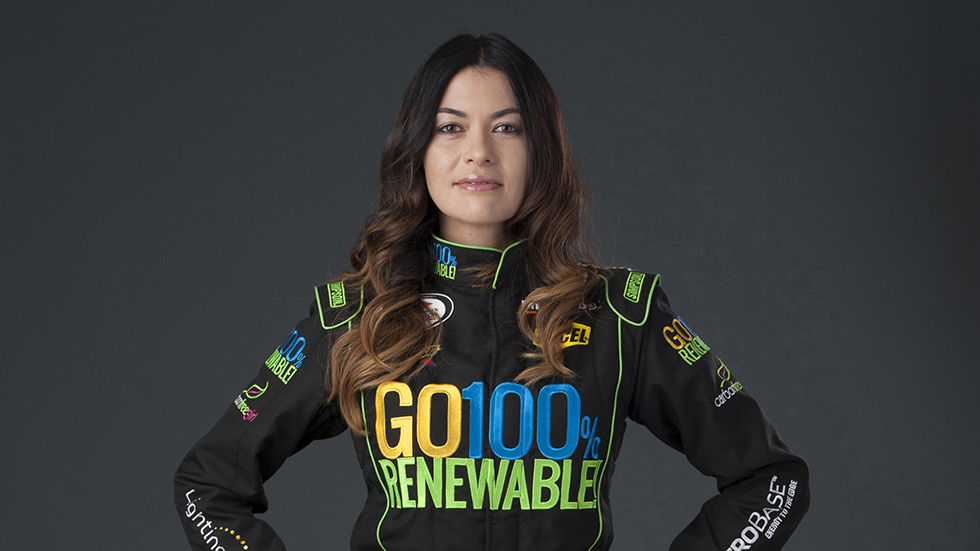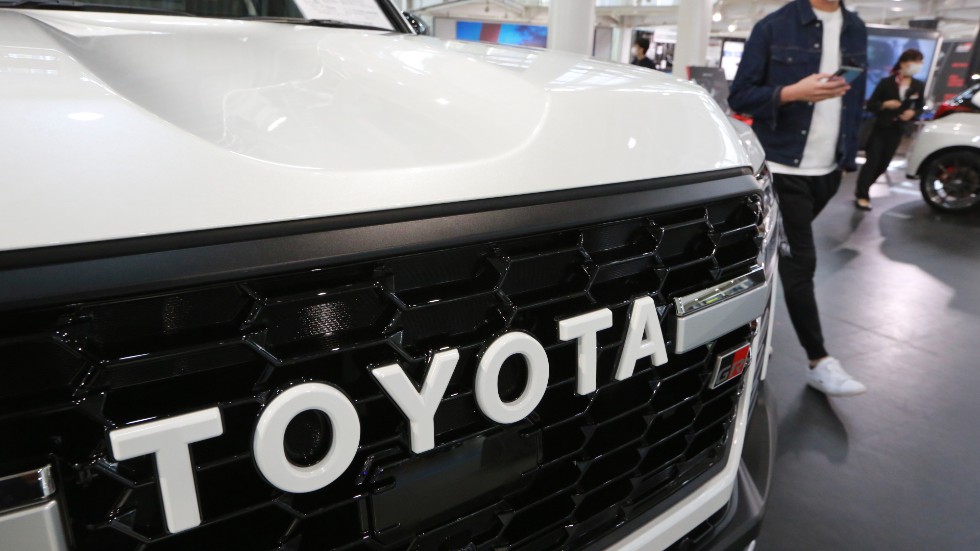Equilibrium/Sustainability — Disabled chargers greet Russian EV drivers

Today is Tuesday. Welcome to Equilibrium, a newsletter that tracks the growing global battle over the future of sustainability. Subscribe here: digital-stage.thehill.com/newsletter-signup.
Electric vehicle owners on principal freeways outside Moscow pulled into charging stations to find them disabled — and showing anti-Putin text on the station displays, automotive industry news site Jalopnik reported.
AutoEnterprise, the Ukrainian company that built the main components for the charging station, left open a “back door” into the chargers’ controllers, allowing hackers to take control remotely, the Russian energy company Rosetti wrote on Facebook.
The disabled chargers showed text like “Glory to Ukraine” as well as crude insults about Putin, according to a video shared by AutoEnterprise — highlighting the potential risks to infrastructure when increasingly complex global supply chains intersect with geopolitical conflict.
Today we’ll look at a proposal to help cancel out the considerable climate and environmental costs of cryptocurrencies. Then we’ll sit down with an environmental activist who fueled her advocacy work from the seat of her race car.
For Equilibrium, we are Saul Elbein and Sharon Udasin. Please send tips or comments to Saul at selbein@digital-stage.thehill.com or Sharon at sudasin@digital-stage.thehill.com. Follow us on Twitter: @saul_elbein and @sharonudasin.
Let’s get to it.
Study: Bundle Bitcoin with carbon credits

The environmental costs of using cryptocurrency could be drastically reduced by combining the digital coins with carbon offsets, a new study suggested.
Step one: Bitcoin and thousands of other digital currencies such as Ethereum and Monero are generated and verified by decentralized global networks of computers solving math problems of increasing complexity.
But crypto-mining requires massive amounts of computing energy, producing staggering environmental impacts, Singapore’s Centre for Nature-based Climate Solutions said in the study released Tuesday.
Bigger than Beijing: “Studies suggest that the total carbon from the Bitcoin network alone could potentially … surpass the total carbon footprint of some of the most populous cities in the world including Beijing, Sao Paulo and New Delhi,” wrote author Aakash Lamba of the National University of Singapore.
Bans spread the emissions wider: Concerns over the power requirements and climate impacts of Bitcoin mining were both partial factors in the Chinese government’s decision to ban the practice last fall, as we reported last August.
Ironically, by pushing mining into jurisdictions with less renewable energy that displacement is leading to a greater environmental impact from cryptocurrency, a recent study suggested.
Here to stay: With $2 trillion in stored value, cryptocurrencies are likely “here to stay,” meaning that we need solutions for them now, Lamba wrote. Cryptocurrencies also have the potential to evade the oversight and sanctions of central banks, as has been seen in Russia since the cut-off of SWIFT, CNBC reported.
Like renewables? Partly. There have been calls to reduce these impacts by powering coin mining with renewable energy or by switching to less energy-intensive methods of computation — like the newer Proof-of-Stake algorithm, which requires less than 1 percent of Bitcoin’s slower, but more secure Proof-of-Work standard, according to Lamba’s study.
But those solutions alone aren’t enough: While new cryptocurrencies can use different algorithms and privately held cryptocurrency networks can move toward using renewable power, such shifts are “very challenging” for established, distributed networks like Bitcoin and Ethereum.
In these networks, mining is spread across a wide variety of jurisdictions unbound by any shared regulatory authority that can get them to switch to renewable energy, Lamba wrote.
CARBON CREDITS OFFER ANOTHER OPTION
Such proposed changes to algorithms and energy sources would work well “in tandem” with carbon credits, which can be as decentralized as the cryptocurrencies themselves, Lamba wrote.
What are carbon credits? Like cryptocurrencies, carbon credits are a new form of financial tool – in this case designed to help companies counter their carbon emissions.
One credit is generated for every ton of carbon dioxide pulled out of the air — or kept from being released into it — by industrial, forestry or ocean projects.
Then these credits can be sold on voluntary or mandatory carbon markets, as we explained in November.
There are accounting problems: Particularly with double-counting, which both seller and buyer of carbon credits both “count the emission reduction toward their climate targets, which may lead to net increase in emissions,” Lamba wrote.
But despite these pitfalls, he added, a solution must be found, because with Bitcoin isn’t going away any time soon, “given the immense wealth locked away in the network.”
Last words: There is a long way to go in “making bitcoins truly ‘green'” Lamba wrote. But “investors may be willing to pay a premium to offset this environmental damage,” he added.
BE IN THE KNOW
We’ve got you covered morning, noon, and night! Sign up now for The Hill’s new Evening Report.
Taking the wheel for green change

For former stock car racer Leilani Münter, plastering her cars with graphics trumpeting the virtues of veganism and warning of the threat of mass extinction made them the ultimate vehicles for influencing public policy on the ground.
First words: “That race car was what allowed me to talk about these issues that I cared about with the environment and animal rights to a group of people, a demographic of people, that weren’t really hearing that message,” she told Equilibrium.
Münter, 48, sat down with Equilibrium to discuss her parallel professions of racer and activist — and what propels her forward today.
“A completely different road”: After earning a degree in biology from the University of California, San Diego, Münter worked as a stunt double for Catherine Zeta-Jones. She saved enough money to fulfill a “bucket list” goal of enrolling in racing school, which she said took her “down a completely different road from biology.”
Her first race was in 2001 in Southern California, where she finished fourth, according to her website bio. In the 18 years before she retired in 2019, she has participated in various NASCAR, ARCA, Indy Pro races and others.
What sparked her activism? While she always tried to incorporate sustainable practices into her life, Münter said the 2006 film “An Inconvenient Truth” struck a chord with both her and her now-husband.
“It was no longer enough to just talk about the environment and nice things that we cared about, just to family and friends,” Münter said. “I needed to somehow try and use my place as a driver to address them.”
How does she reconcile driving with sustainability? Münter said she pledged to adopt an acre of rainforest every time she sat in her car. Carbon-offsetting, she explained, was the only way she could address the fossil fuels she was burning while racing.
“I ended up adopting over 1,500 acres of rainforest over my career,” Münter said, adding that most recently, she did so through the Rainforest Trust.
Her fuel usage — about 30 gallons per race, across 61 lifetime races — was small in comparison to what she would have been using in her daily life, had she been driving a gasoline-based car at home, Münter said. She has driven the same Tesla — which recently hit 100,000 miles — since 2013.
An environmental “billboard”: Throughout her racing career, Münter said she prioritized sponsorships from environmental companies and groups. She also ran ads — through crowdfunding — for the 2009 Oscar-winning film “The Cove” and the 2013 film “Blackfish.”
And at one point she had a “vegan-themed car,” from which she distributed vegan cheeseburgers and chicken nuggets to fans.
“It was really my vehicle to reach people,” Münter said. “Once I retired, I lost that. I lost that billboard.”
AN ONGOING GREEN LEGACY, NOT JUST BEHIND THE WHEEL
Münter’s deep-rooted environmental activism continues today, even though she’s no longer behind the wheel. Münter first became an ambassador for the National Wildlife Federation in 2008, advocating for clean energy legislation on Capitol Hill. She began working in 2012 with the Oceanic Preservation Society on their film “Racing Extinction,” which explores mankind’s contribution to mass extinction.
Some of her current work includes advocating for electric cars in her home state of North Carolina, as well as fighting against efforts to reduce solar rooftop subsidies in other states — an issue we reported on earlier this month.
Münter also powers her house with solar panels, recycles rainwater and composts organic waste.
The population problem: Concerned that the world’s population growth is unsustainable, Münter and her husband have also decided to not have children.
While emissions-reducing behaviors do help, she expressed doubt that these efforts would be sufficient “to combat the overall driving force behind species extinction.”
“All those things are increased when we continue to increase our numbers,” Münter said.
Last words: Looking back at her choices, Münter said she feels like racing helped her become a more effective activist than she ever could have been as a scientist.
“You can’t expect a NASCAR fan to show up at an environmental-level film festival,” she added. “But if I put the environmental film on the hood of my race car, then they might be inclined to watch the film.”
To read our full interview with Münter, please click here.
Tech Tuesday

“Manual” electric cars; solar stills for desert crops; and a step forward for green hydrogen.
Toyota toys with simulated ‘manual transmission’ for electric vehicles
- Carmaker Toyota has filed patents to build stick shifts into their electric vehicles in an effort to draw enthusiasts into a driving experience that recalls the feeling of manually shifting through the gears, Edmunds reports. Though electric vehicles (EVs) are technically gearless, if the stick-shift emulator could give the driver a pleasant feeling of greater control over their car’s impressive torque, “the faux-manual EV might make a case for itself,” according to Edmunds.
Saudi Arabia scientists use solar power to pull water from air for crop irrigation
- Scientists in Saudi Arabia have created a solar-driven mechanism that can cultivate water spinach by drawing water from the air while generating electricity, publishing their findings in Cell Reports Physical Science on Tuesday. The scientists placed a solar photovoltaic panel on a top of layer of hydrogel — a gel-like polymer that attracts and absorbs water. Then they mounted the system on a large metal box to condense and collect water, which they used to irrigate water spinach seeds, according to the study.
New screening system could help make hydrogen fuel production more efficient
- Penn State University scientists have developed a highly sensitive system for detecting hydrogen production — which they said could help position hydrogen as an environmentally friendly alternative to fossil fuels. Their findings, published in the Review of Scientific Instruments, showed that their tool could screen promising photocatalysis — materials that split water molecules into hydrogen and oxygen gases when placed in water and exposed to sunlight — and detect very small amounts of hydrogen.
Please visit The Hill’s sustainability section online for the web version of this newsletter and more stories. We’ll see you on Wednesday.
Copyright 2023 Nexstar Media Inc. All rights reserved. This material may not be published, broadcast, rewritten, or redistributed. Regular the hill posts









